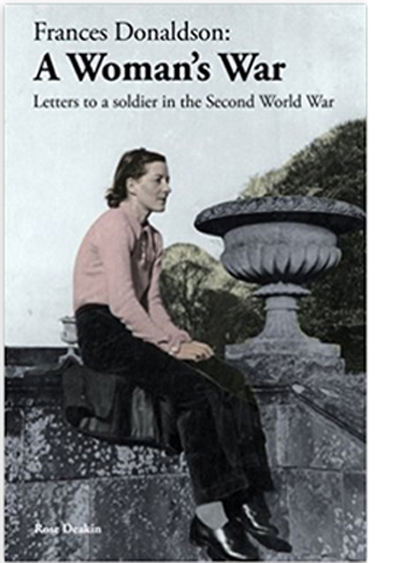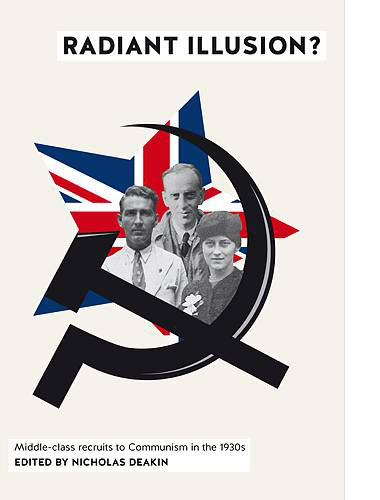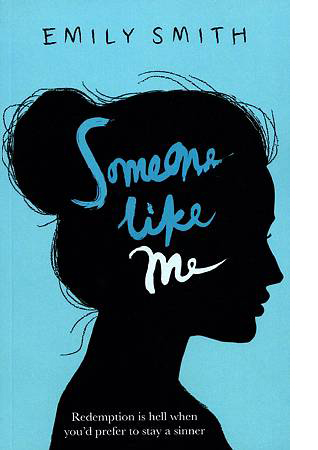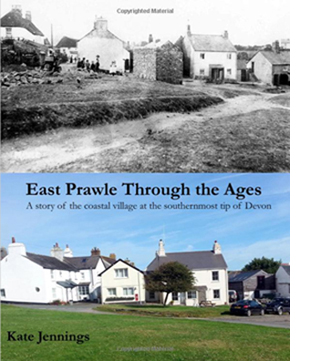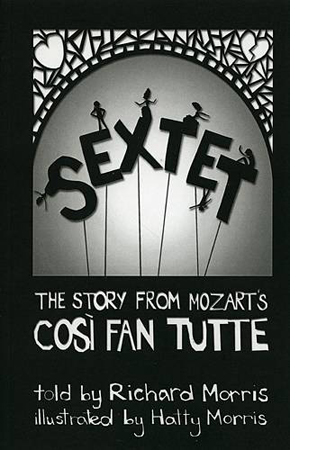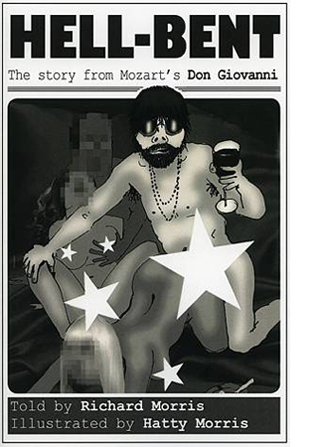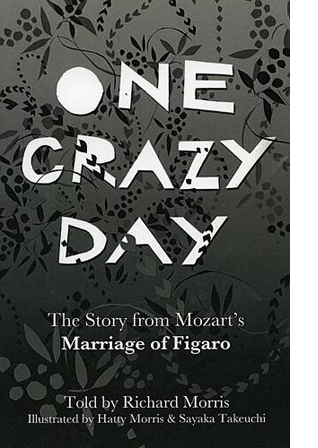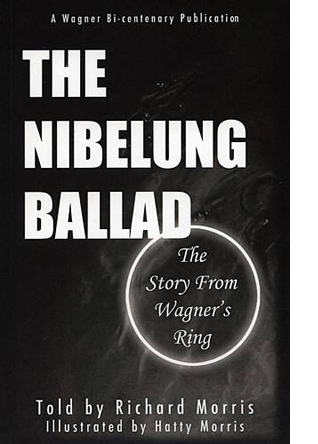
Books
Click on image to buy the book you want
What makes a 1930s society girl become a farmer?
Answer: the Second World War.
This is the story of my mother, Frances Donaldson, a privileged young woman giving her all in wartime. With her soldier husband, Jack, far away and 2 young children to care for, she bought a farm near Stratford-Upon-Avon and determined to live off it. Could an emotionally fragile young mother survive the ordeal? During 6 long years of war, she learned to farm, battling with the antagonism of the men she was trying to manage, vulnerable to the demands of the Ministry of Agriculture while coping with small children and no money. War was a test of relationships, character and endurance. A Woman’s War tells how she conquered WWII. An emotional tale from riches to rags, from joy to sorrow, and, at the end of the war together again with Jack, rejoicing. They continue farming together in the small Warwickshire village of Wilmcote.The story is illustrated with letters and contemporary photographs. Read it and share her trials today. Robert Boyd wrote: "Female farming in "The War". A laughing, crying, gripping, writer-to-be's letters to her husband through five long years of separation. She, a famous playwright's daughter from high society turned farmer, responds with candour and can-do to male dominance in the cowshed and the realities of the woman's land army volunteers. A moving must-read of feminism two generations before its time coupled with the real smell of Britain before and after Dunkirk. The fear and the relief." Robert Boyd
The story of young middle class people who joined the British Communist Party (CPGB) in the 1930s has too often been seen through the distorting prism of cold war values.
This book presents a more balanced picture of their beliefs and actions, one in which these 1930s recruits emerge as intelligent and sensitive people, well aware of the implications of the decisions that they took in the highly stressful political circumstances of the times.
Hindsight shows that some of their judgments were wrong.
But their errors should not be allowed to devalue the genuine idealism that motivated them at the time - and subsequently.
This book draws on archives, family papers and personal memories, including individual case studies, which were presented at public lectures and seminars at Gresham College London in 2013 and 2014 (see www.gresham.ac.uk).
Edited by Nicholas Deakin
When an eco-friendly sister takes sweet vengeance on her sex-in-the-city socialite sibling, our shallow,
materialistic heroine avoids destitution by joining forces with the new-age family her sister left behind.
Condemned to the purgatory of working as an au pair for a family who prefer lentil stew over Beef Wellington,
she is forced to swop Harvey Nichols’ Prada for Charity Shop Primark,
and bring forth the maternal instincts that she’d happily traded in at birth for a glitzy London career.
Despite her determination to remain unsullied by the hippy lifestyle she is forced to inhabit,
she forms an unlikely alliance with her three young charges.
Lovers for breakfast and spiritual choices no deeper than deciding which Alexander McQueen outfit
to wear with her latest impossibly high heels, is the life she left behind and desperately wants back.
But our heroine falls for a man as deep as she is shallow,
and for the first time in her life begins to build - and fight for - relationships that actually mean something.
In this fast-paced, wickedly funny satirical comedy, our anti-heroine learns that on the way to getting even,
being square isn’t all it’s cracked up to be.
Reviews
"Someone Like Me had me laughing out loud(with the kids asking me why all the time
and mostly I couldn't repeat it!)". Imaoen
"Hilarious and naughty, as if The Devil Wears Prada starts channelling The Good Life".
"A friend of mine visiting from the UK kindly allowed me to read Someone Like Me. I sent her back without it. G Valentine
"Hilariously funny and brilliantly written. Every line sparkles with biting humour and clever word play. I couldn't put it down and read it all the way through in one sitting. A real gem".
A treasure trove of rural history found in a holiday village in South Devon.
Formerly a centre of farming, some fishing and a little smuggling,
East Prawle is now celebrated more for its walks, beaches, coastline and popular Pig's Nose Inn. But its history is still there and in this book much of it has been lovingly researched and recorded from conversations with the more elderly locals and also from memories and tales passed down to the younger generations. In this way it has been preserved for posterity. Kate Jennings has built on the memories by developing many of the topics more deeply, and has been able to set a historical framework to much of the personal memories and recorded practices. Illustrated with fascinating photographs and drawings, the book is like that hidden chest left for years in the attic, and finally discovered. Memories half forgotten and stored away have been excavated by Kate Jennings and presented in this delightful book. The importance of records like this cannot be underestimated as generations die and memories are lost. So much of local and social history is unrecorded since much of written history is about great events and changes, while the routines and adjustments of everyday life are forgotten. As a result of this book, they are not 'hidden from history' but saved for posterity. East Prawle has been a farming and fishing village for thousands of years as well as hosting various activities including smuggling, piracy and the plundering of the many ships wrecked in the area. Prawle’s unique geology from Bolt Tail to Start Point contains metamorphic schists from various eras and has been described as ‘perhaps the finest headland on the South coast of Devon’.
Mozart's comic opera, Cosi Fan Tutte, has both delighted and puzzled opera audiences for over 200 years. Sextet tells the story from this musical masterpiece through highly entertaining verse and illustrations. A short Introduction provides insights into the intentions of the composer and librettist; and the text and illustrations themselves suggest possible new interpretations of this brilliant and witty essay on the turmoil of young love. Sextet is a delightful companion for those already familiar with the opera and an ideal introduction for those approaching it for the first time. Sextet is the third publication in the OPERARHYMES Collection (www.operarhymes.com), telling the stories from the world's greatest operas in illustrated verse form.
Mozart's opera Don Giovanni is based on the timeless story of the unrepentant serial womanizer who comes to a bad end. Hell-Bent provides a short introduction to the opera and tells its entire story in lively and entertaining verse form,with a series of powerful illustrations which set the action firmly in the twenty-first century. Hell-Bent is an ideal introduction for those approaching the opera for the first time as well as a delightful refreshment for regular opera-goers. Hell-Bent is the fourth publication in the acclaimed Operarhymes collection (www.operarhymes.com), following on from The Nibelung Ballad (Wagner's Ring), One Crazy Day (Mozart's Marriage of Figaro) and Sextet (Mozart's Cosi fan tutte). "I really enjoyed reading Hell-Bent. It made me laugh out several times, and is created with such an obvious care to detail and love for Mozart's wonderful opera. It immediately made me want to listen to Mozart again soon." Kasper Holten, Director of Opera, Royal Opera House, Covent Garden
One Crazy Day tells the story from Mozart's brilliant opera, The Marriage of Figaro, in witty, illustrated verse form. It is a delightful companion for those already familiar with this comic masterpiece and an ideal introduction for those approaching it for the first time. One Crazy Day recounts every twist and turn of this wonderful story of servants outwitting their master, and captures the glorious spirit of the opera itself. Editorial Reviews "One great, gripping and - amazingly - entirely lucid terza rima romp" Neil MacGregor "Delightful, elegant and useful" Simon Callow
The Nibelung Ballad tells the story from Richard Wagner's music drama, The Ring of the Nibelung, in illustrated verse form. "The Ring", which was first performed in 1876, comprises four full-length operas, The Rhinegold, The Valkyrie, Siegfried and The Twilight of the Gods, and is regarded as one of the greatest musical and dramatic masterpieces of all time. Derived from Nordic mythology, The Ring charts the history of the world from beginning to end. It is an epic story of Gods, dwarves and humans battling to fulfil their respective destinies, in which the evil lusts for power and wealth are ultimately redeemed through human love. In the Nibelung Ballad, Richard Morris (author) and his daughter Hatty Morris (illustrator) set out this immense and complex story in a concentrated form, which is attractive to both ear and eye and thus easy to assimilate. The Nibelung Ballad is invaluable both to refresh the memories of those already familiar with The Ring and to introduce it to all those who are approaching this masterpiece for the first time.
